Our Space Our Future – Impact Evaluation
Have we made a difference?
Effective evaluation of the Our Space Our Future project has played a key role in determining how successful our communication and dissemination efforts have influenced the opinions of young people in the following areas:
Interest–is space science interesting?
Relevance–is space science important to their own life and society in general?
Accessibility–who works in space science?
Possible selves–could they themselves be a space scientist?
Future aspiration–do they intend to pursue space science in the future?
After each of the school interventions, the pupils who were involved were asked to fill in the following questionnaire, asking them about their thoughts on the activities and if they could see themselves working in the space sector.
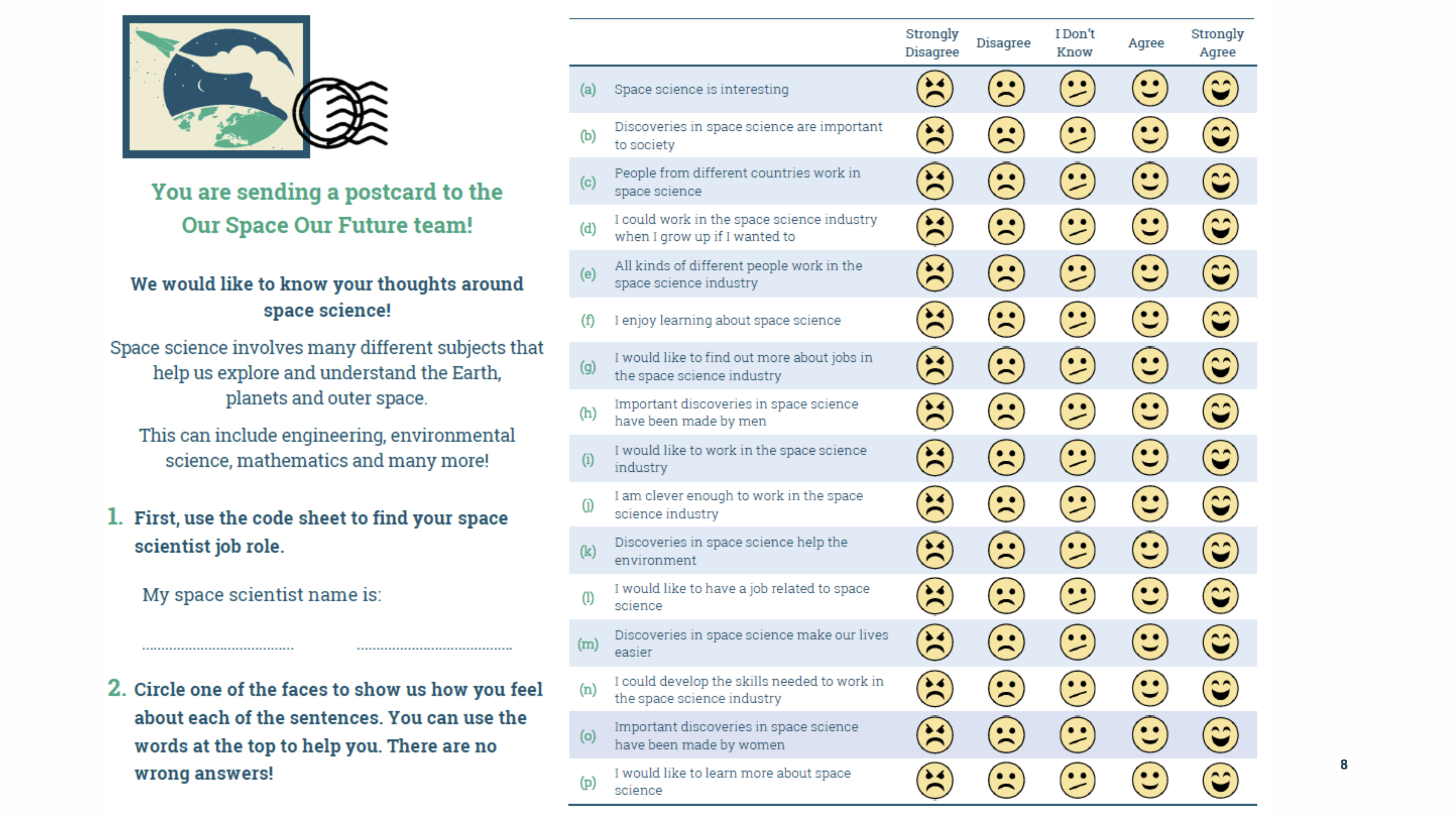
-
- Our Space Our Future achieved or partially achieved 19 out of 21 Generic Learning Outcomes.
-
- Following the implementation of Our Space Our Future, 85.8% of students agreed or strongly agreed that ‘space science is interesting’.
-
- Following the implementation of Our Space Our Future, 85.3% of students agreed or strongly agreed that people from different countries work in space science.
-
- Following the implementation of Our Space Our Future, 81.0% of students agreed or strongly agreed that discoveries in space science are important to society.
-
- Following the implementation of Our Space Our Future, the majority of students still do not aspire to a career in the space science industry.
-
- The Our Space Our Future interventions were successful in narrowing the gap in differences in attitudes among male and female students.
-
- Active participation and autonomy are crucial to positive learning experiences in science and STEM.
-
- A large area of impact was seen in promoting students’ recognition of the diversity of the space industry and the variety of possible career pathways.
-
- A career in the space industry is perceived by many students as a daunting career path that is dangerous, high pressured, and requires you to be away from your family.
-
- Tailoring interventions to students’ specific interests and introducing them to industry professionals who are personable and ‘like them’ can help students perceive the space industry as a desirable and realistic career pathway.
-
- Framing science as a process of asking questions rather than always having the answer get help students to feel empowered to do science and STEM.
-
- Over 90% of teachers involved in Our Space Our Future agreed or strongly agreed that the continued professional development (CPD) content would benefit their students, was inspiring and will be useful in their teaching and in engaging their students.
-
- Over 90% of teachers reported that they would share their learning from Our Space Our Future with their colleagues.
-
- Having completed the Our Space Our Future CPD session, teachers intended to include space-related classroom activities more frequently and promote the diversity of job opportunities in the space industry to their students.
-
- Public audiences enjoyed being active participants with the opportunity to engage in a variety of hands-on activities.
-
- Parents expressed their enjoyment and appreciation of observing their child’s participation and learning about the work they had been doing with Our Space Our Future.
-
- Public audiences indicated that they would like to continue their engagement with space-related activities in the future.

Or take a deep dive into the results from our evaluation!
Our Space Our Future induced a positive change in students’ attitudes toward space science for 12 out of the 14 attitude statements presented to students pre- and post-interventions
Two statements yielded increases of 10% or more, and five statements yielded an increase of 5% or more. Nonetheless, it is disheartening that the statements related to students’ career aspirations and sense of empowerment to pursue careers in the space industry did not yield any change following the Our Space Our Future interventions.
Students perceived the Our Space Our Future activities to be more exciting and captivating, even for the more disengaged students.
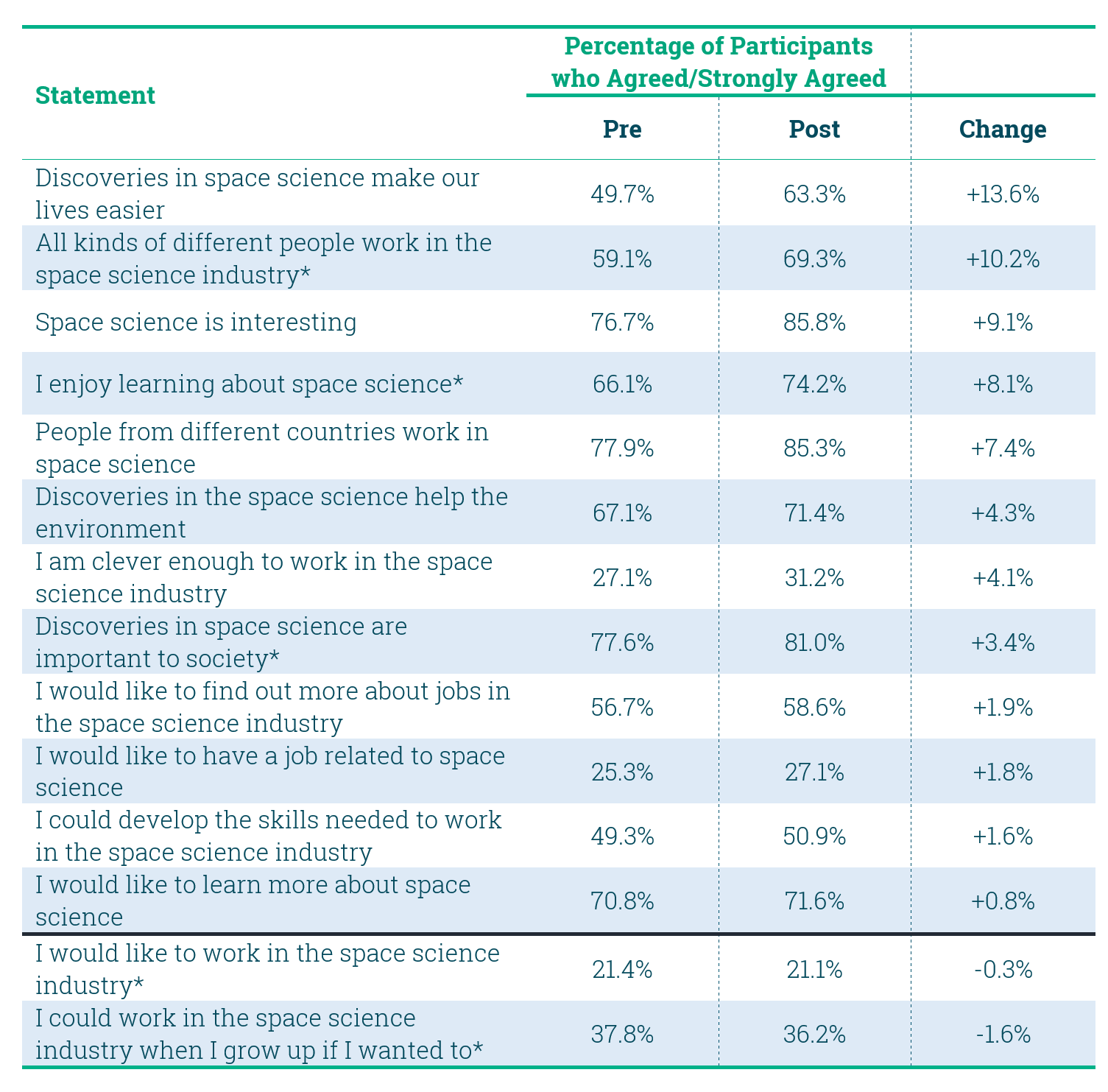




There is still work to be done!
Interest is not enough
70.7% of students agreed ‘space science is interesting’
17% of students agreed ‘I would like to work in the space science industry’
Gender differences were observed
For all but one statement, male students indicated a more favourable response compared to females.
In all countries
Pursuing a career in space science – negative response
Accessibility of space science – positive response


We also heard from the public/family/parent who also attended our community events!
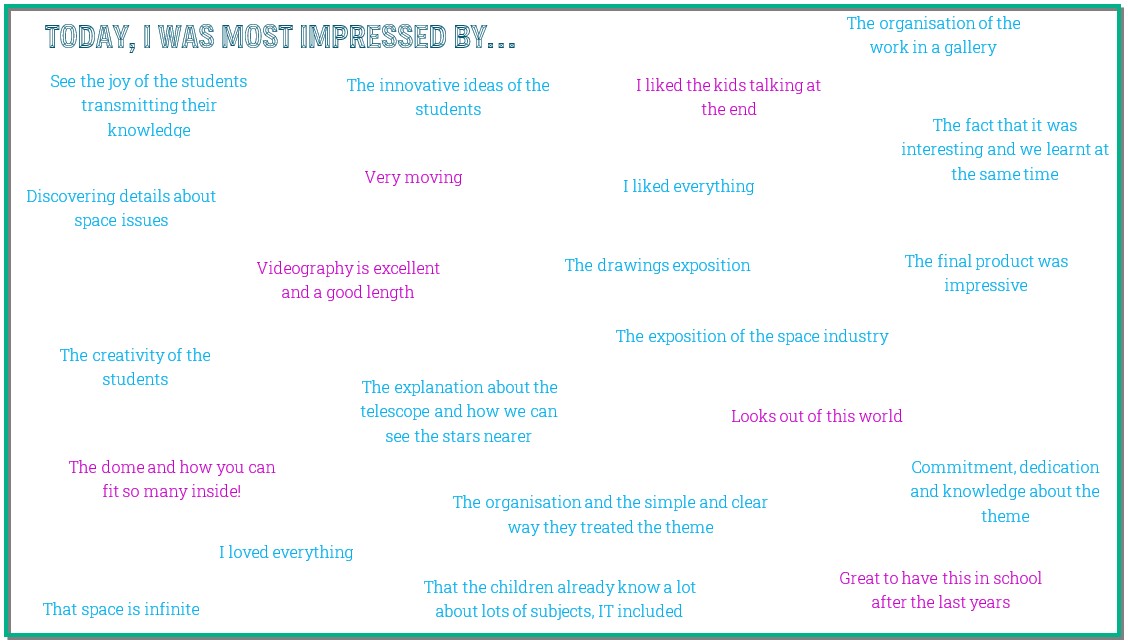
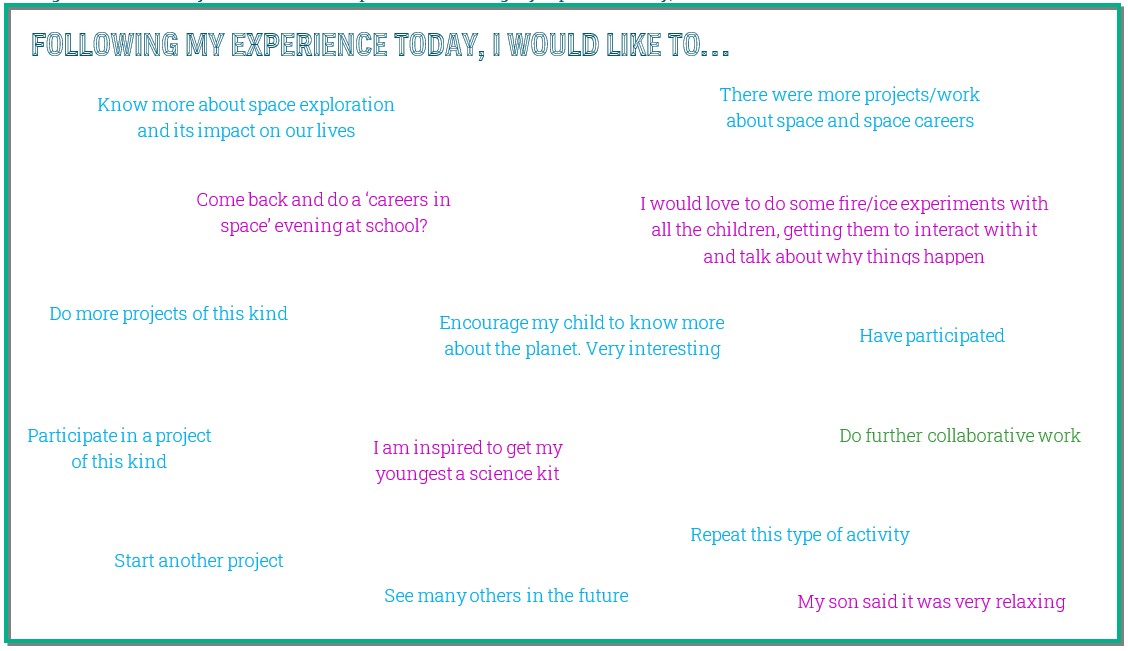

Responses to the Teacher’s Continous Professional Development events
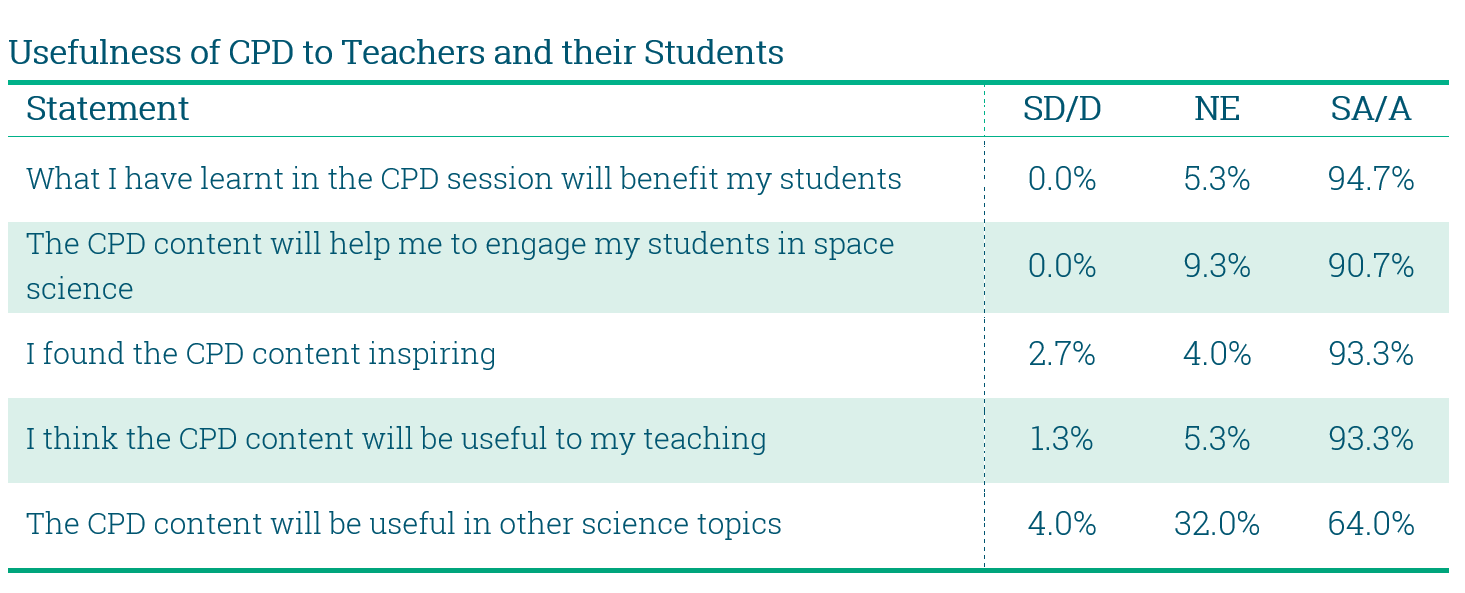
As part of our teacher CPD events, we asked all those who took part how useful they found these sessions, with the majority of the responders finding these sessions useful. A selection of our Teacher CPD activities can be found in our toolkit.
We also asked if, after these sessions, would the teachers incorporate more space-related topics into their lesson plans. These results were very positive and showed that across the board, those who took part in these events would increase the amount of space-related content they taught in their lessons.
Others planned to personalise their teaching more, placing students and their interests at the core of learning and making connections with local industry.
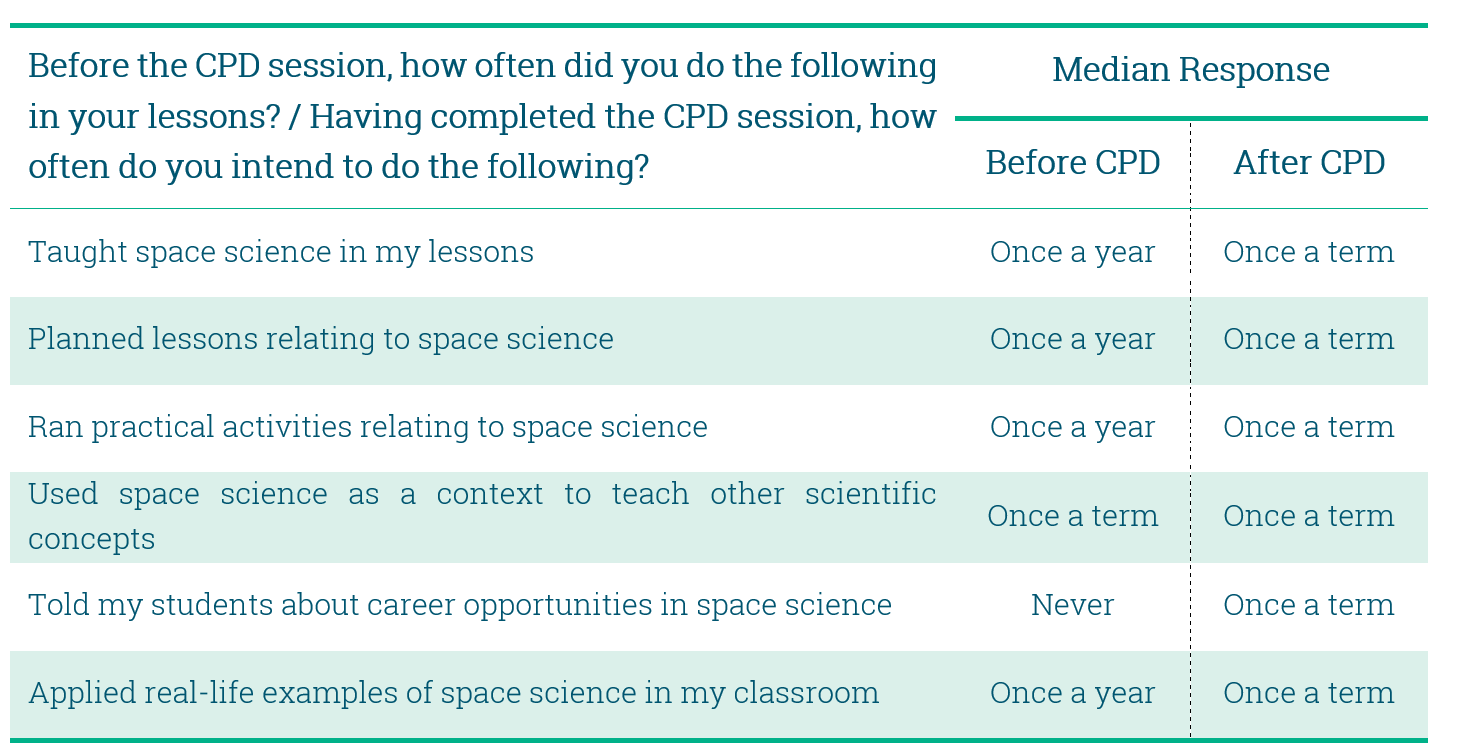
We also asked the teachers what they would like to try themselves after their experience with Our Space Our Future.




We would like to thank everyone who took part in the Our Space Our Future project, we could not have done it with all of you!
Head over to our deliverables page to learn more about the results of the Our Space Our Future Project
